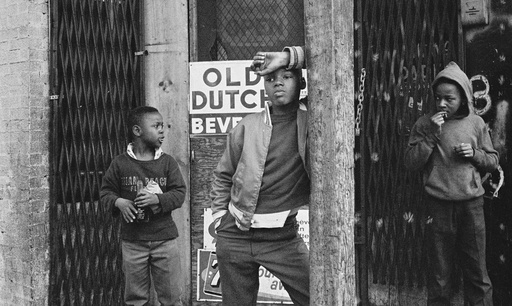
NEW YORK — The passing of photographer Ernest Cole in 1990 at the age of 49 due to pancreatic cancer went largely unnoticed, leaving little mark on the world. By that time, Cole had been marginalized and was living in poverty, having been exiled from his home country of South Africa following the release of his groundbreaking photographic work, “House of Bondage.” After moving to the United States in 1966, his life descended into cycles of homelessness. The only acknowledgment of his death was a brief obituary in The New York Times, buried among other death notices.
However, the new film “Ernest Cole: Lost and Found,” directed by Raoul Peck and narrated by LaKeith Stanfield using Cole’s own words, revives Cole’s legacy with robust energy. Set to debut in theaters on Friday, this film showcases many of Cole’s striking photographs, some of which have never been seen before.
Peck, who previously garnered acclaim for his documentary “I Am Not Your Negro” about James Baldwin, co-writes the film with Cole, drawing from the late artist’s writings. Through a blend of images and texts, the documentary vividly articulates Cole’s poignant narrative, reexamining the injustices he highlighted through his powerful lens.
“Film serves as a political instrument for me,” Peck affirmed in a recent lunch meeting in Manhattan. “My mission is to reach the widest audience possible and help them comprehend their place, actions, and responsibilities. It reflects my fight in the present rather than dwelling on the past.”
“Ernest Cole: Lost and Found” proves to be a multilayered exploration that transcends Cole’s personal experiences. The film raises critical reflections not only on the societies he documented but also on the treatment of artists like him, drawing unsettling comparisons between apartheid in South Africa and the lingering impacts of segregation in modern America. Despite receiving a Ford Foundation grant to document Black life in both rural and urban settings in the U.S., Cole faced challenges in establishing his career, with some editors suggesting that his images lacked the desired “edge.”
In a remarkable turn of events, over 60,000 of Cole’s 35mm negatives were discovered in a Stockholm bank vault in 2017. Much of this extensive collection, which included photographs taken during his time in the United States, was thought to have been lost forever. The film documents the arduous journey of Cole’s estate to reclaim these essential works, culminating in the bank’s announcement to hand over most of the materials just before the film’s premiere at the Cannes Film Festival.
The photographs unveil a multifaceted artist who transcended simple documentation of apartheid. Cole’s early works, released in 1967, provided some of the most powerful representations of apartheid to an international audience, including a famous image of a middle-aged woman on a park bench with a “Europeans only” sign. But Cole also offered astute observations of the segregated yet vibrant aspects of American life. “It’s a matter of survival,” his voiceover states, echoing Cole’s relentless pursuit of capturing every fleeting moment.
For Peck, who has spent many years living away from Haiti, the film resonates with deeply personal themes. The 71-year-old filmmaker, who served as Haiti’s cultural minister, dedicates the work “to those who died in exile,” reflecting on the losses of friends and colleagues during his own journey.
Peck has spent nearly forty years creating significant films that address urgent themes, spanning both fiction and non-fiction. His works diverge from genre conventions, often blending narrative and documentary styles to explore unexamined truths. This approach sets him apart in a documentary landscape increasingly dominated by high-budget, superficial productions aimed at streaming platforms.
“The situation has worsened,” Peck observes. “With less funding available, younger filmmakers often accept conditions that my generation would have rejected. The entire industry has changed, and I mourn the loss of what it used to be.”
Currently, Peck is in the editing phase of a documentary on George Orwell. Echoing his work on “Ernest Cole: Lost and Found,” this upcoming project will be based entirely on Orwell’s own words. As he prepares to update segments of the film in light of the recent U.S. elections, he marvels at how prescient Orwell was regarding contemporary issues such as misinformation, artificial intelligence, and the refugee crisis.
Peck reflects, “Orwell was an incisive critic of history and the narratives we construct.” He hopes his films will serve as relevant dialogues with today’s audience, reinforcing the notion that “a film holds value when it resonates with our current realities.”
